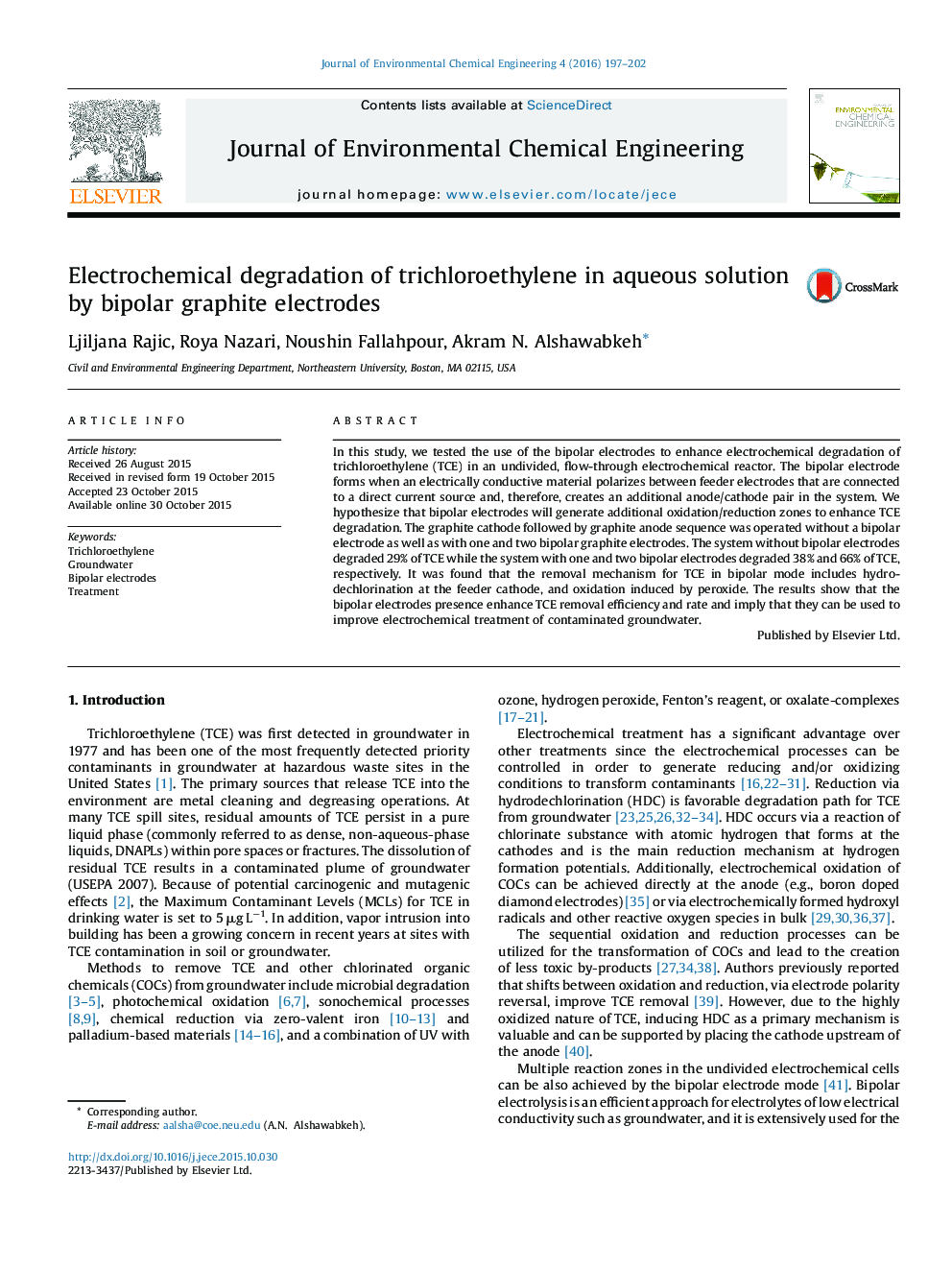| کد مقاله | کد نشریه | سال انتشار | مقاله انگلیسی | نسخه تمام متن |
|---|---|---|---|---|
| 221875 | 464267 | 2016 | 6 صفحه PDF | دانلود رایگان |
• Bipolar electrodes enhance electrochemical degradation of trichloroethylene.
• Bipolar electrodes generate reduction and oxidation zones to degrade trichloroethylene.
• Degradation includes hydrodechlorination at the cathode followed by oxidation with peroxide.
In this study, we tested the use of the bipolar electrodes to enhance electrochemical degradation of trichloroethylene (TCE) in an undivided, flow-through electrochemical reactor. The bipolar electrode forms when an electrically conductive material polarizes between feeder electrodes that are connected to a direct current source and, therefore, creates an additional anode/cathode pair in the system. We hypothesize that bipolar electrodes will generate additional oxidation/reduction zones to enhance TCE degradation. The graphite cathode followed by graphite anode sequence was operated without a bipolar electrode as well as with one and two bipolar graphite electrodes. The system without bipolar electrodes degraded 29% of TCE while the system with one and two bipolar electrodes degraded 38% and 66% of TCE, respectively. It was found that the removal mechanism for TCE in bipolar mode includes hydrodechlorination at the feeder cathode, and oxidation induced by peroxide. The results show that the bipolar electrodes presence enhance TCE removal efficiency and rate and imply that they can be used to improve electrochemical treatment of contaminated groundwater.
Journal: Journal of Environmental Chemical Engineering - Volume 4, Issue 1, March 2016, Pages 197–202
